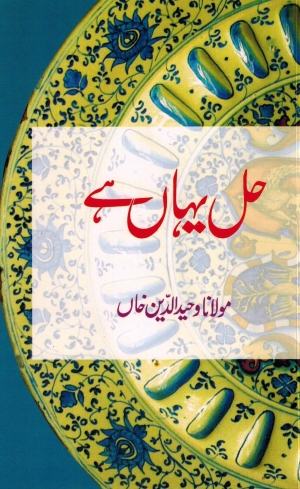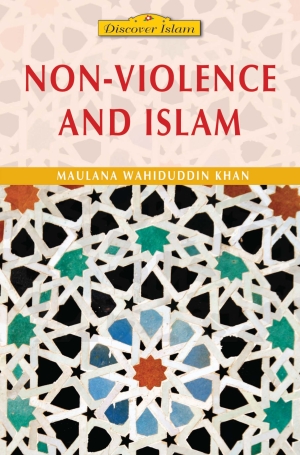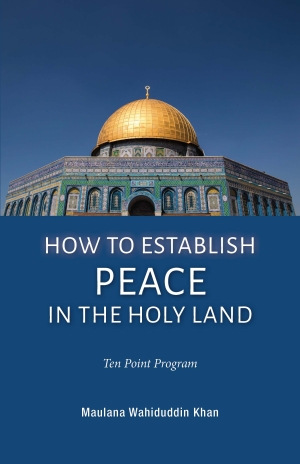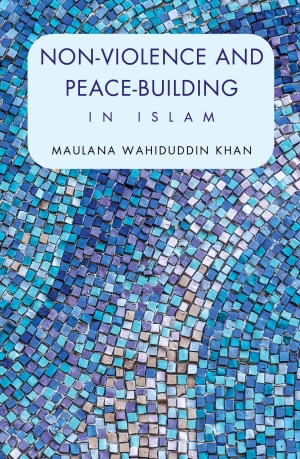We are so closely interdependent globally that peaceful and mutually beneficial relations between different religious communities have become indispensable. Today, countries and communities can no longer afford to live in isolation from each other. Differences between people cannot be allowed to escalate into conflicts. We must find peaceful ways for conflict resolution. The approach to conflict-prevention, conflict-resolution, and peacebuilding outlined in the material of Maulana Wahiduddin Khan is based on the Quran and the life of the Prophet. Drawing lessons from these sources, Maulana gives principles to negotiate differences and conflicts at all levels—from between individuals to between communities and entire countries. These lessons are of universal relevance. There is now no need to indulge in conflicts over differing interests to gain one’s ends. Some of these principles include conflict prevention, conflict management, nipping conflicts in the bud, winning over one’s opponents, finding a friend in one’s enemy and not provoking the ego of others.
Another aspect to consider is that differences and problems are a natural part of life. They are a blessing in disguise if we look at them positively as challenges. Presenting Arnold Toynbee’s theory of challenge-response mechanism, we explain that we can use challenges as opportunities to progress in life’s journey as individuals, social groups, and nations.
Featured Articles
Featured Videos
FAQs
Life is a series of different kinds of experiences, both good and bad. A good experience, suits us perfectly well, but what how can we ensure that bad experiences do not result in conflict? The Quran gives us a very simple answer: Avoid any unpleasantness by remaining noncommittal. This principle is set forth in one of the chapters of the Quran. When the Prophet of Islam started his mission in Makkah in 610 CE, the situation was highly unfavourable. Often, he faced unwanted situations and at that juncture, the following verse was revealed in the Quran:
“Bear patiently with what they say, and ignore them politely.” (73: 10)
In such a predicament, patience is not a passive attitude; it demonstrates great wisdom. When you keep your patience, you are saving your time and energy. Being patient in a difficult situation means that if you sense that the other person is not in a responsive mood, you should adopt the principle of avoidance, give him an evasive reply and then proceed with your own affairs. It is only if you see that the other person is listening to you in earnest that you should present your point of view to him. This principle is very important in social life. Society is a combination of different kinds of people and the way we live our lives in society is very often determined not by our own choices but by the will of others. If you try to convince all the members of society of your wish to prevail.
Source: Spirit of Islam July 2016
The best policy to adopt vis-à-vis one’s opponents is to save oneself from directly clashing with them, and instead, try to move ahead. Your opponent should not get the opportunity to feel that you are interfering in his domain. If you happen to confront your opponent, you should appear to be inactive, saving yourself from his aggression. Or you should keep yourself carefully confined to your own domain, and in this way, convince your opponent that you will not cause him any harm. Along with this, you should also adopt measures that will enable you to foil your opponent’s aggressive plans in a possible emergency situation. In this way, you will be able to save yourself from clashing with others. This will save you time and energy.
Source: Spirit of Islam July 2017
The Quran gives important guidance on how to resolve controversial situations in these words: “for reconciliation is best.” (4:128)
The policy of reconciliation is not only effective for problems relating to family matters but is equally useful for all other problems, both national and international.
When controversy arises, reconciliation is the best course. That is, you have to adopt a conciliatory rather than a confrontational approach. The conciliatory approach always minimizes the problem, while the confrontational approach aggravates matters while leaving the initial problem unsolved.
The fact is that you are not living on an isolated island; you are bound to live in society. You have no option other than to live with others in a family, in a society, in a nation, and in international life. In such a situation, you cannot afford to live on your own. If you become egocentric and ignore other people, you will unnecessarily make others your rivals, so the best policy is to accept others, adopting the policy of adjustment. You have to avoid all kinds of clashes, so that you may save your energy and your time.
Adopting the policy of reconciliation is not just a question of being accommodating toward others. It is much more than that. It allows you to continue your journey of life without any breaks. It saves you from deviation and permits you to dedicate your life more and more to worthy goals.
If you adopt the policy of confrontation, you will very soon discover that there is no end to your difficulties, and this will lead to clashes and clashes will culminate in violence. And, of course, the next stage after violence is conflict, war, and fighting. The best policy, therefore, is to rid oneself of the confrontational mentality at the very outset.
The conciliatory approach seems to be directed against another person, but in fact, the confrontational approach is against the law of nature. It is a man-versus-nature issue rather than a man-versus-man issue. You cannot change the course of nature, so there is no option other than to seek a settlement with nature. This is the only way of success in this world.
Source: Quranic Wisdom













